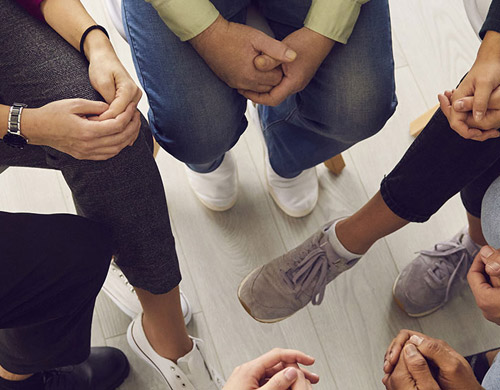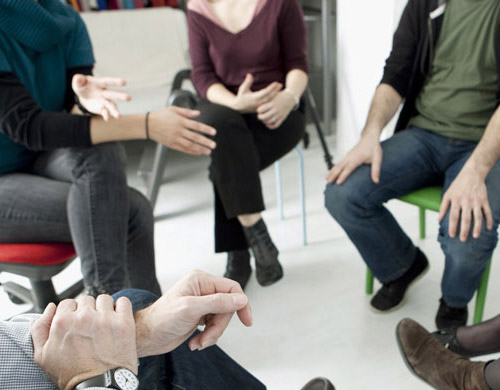Drug and alcohol dependence are challenging to address when they hurt you or someone you care about. You can treat addiction even though it is a disease, and long term recovery is likely through professional rehab intervention methods.
This page will address how integrating addiction treatment methods can encourage long-term recovery for yourself or a loved one.
What is Addiction Rehab (Rehabilitation)?
When we use the term addiction ‘rehabilitation’, we refer to the combination of medical and psychotherapeutic treatments applied to tackle dependencies on alcohol and drugs (including prescription medications).
Rehab that is unique to your individual needs is successful when it includes medically-supervised detox, residential programs, outpatient services and aftercare.

Facts & Statistics about Addiction in Inyo
Prevalence of Substance Use Disorder, by Drug Type
(IN THOUSANDS)
- 2,7578.5%Any Substance
- 2,0886.4%Alcohol
- 1,0683.3%Ilicit Drugs
- 2060.6%Pain Medication
Drug- and Alcohol-Induced Deaths by Age Group, California, 2016
- Alcohol-Induced
- Drug-Induced
- 18 to 250.5
- 9.6
- 26 to 354.3
- 13.9
- 36 to 6424.2
- 22.9
- 65+23.7
- 9.4
Drug Use, by Selected Type and Age Group California, 2015 to 2016
- 12 to 17
- 18 to 25
- 26+
- Marijuana*13.2%
- 34.0%
- 13.5%
- Misuse of Pain Medications3.5%
- 8.0%
- 4.3%
- Cocaine0.8%
- 7.2%
- 1.8%
- Heroin0%
- 0.4%
- 0.2%
What are the treatment options available in Inyo?
A consolidated treatment approach offers a successful way to tackle the root causes of substance and alcohol dependencies. Exploring coping strategies to treat the root causes of your addiction is just as crucial as treating the symptoms of addiction.

Private Residential Programs
Residential addiction treatment programs require you to live at the rehab facility and take part in your treatments on-site. Having Access to daily support and addiction treatment is obviously one of the core benefits.
There is huge value in taking yourself away from the home environment and becoming fully focused in the rehabilitation program, because you are no longer vulnerable to the stressors and triggers that may have caused you to abuse drugs. By having an environment around you that is supportive, your chance of relapse is much smaller and you are more likely to complete your residential treatment programme.
Residential addiction treatment programs are considered most effective if your drug or alcohol dependency is chronic and intense, or if you experience co-occurring illnesses or a dual diagnosis. We know that the first year of recovery are crucial and after a residential treatment program, you will need to stay focused so that you can maintain your sobriety. Once you have finished your residential program you will want to be more independent and set life goals and new challenges.
Do You Need Help?
Our addiction advisers are here to help you.

Sober Living Programs
A sober living program will encourage you with vital skills you need, through guidance and support. You can expect:
- A house manager to check in on you daily
- Working on guidelines for acceptable behavior in recovery
- Getting guidance and companionship from others in recovery who will have similar challenges
Outpatient Programs
By enrolling in an outpatient program you have more flexibility, by visiting the rehabilitation facility for treatment weekly and maintain family or work commitments.
Outpatient programs usually provide you with:
- Education around substance misuse
- Counseling and talking therapies through the use of group sessions and individual sessions with a skilled addiction therapist. – Outpatient programs typically run from a few months to a year, and your personal needs will determine the necessary duration of treatment.
Detox Only Programs
Taking part in a detox program is an important hurdle in rehab as it helps address your physical dependency by eliminating substances from your system. You typically develop withdrawal symptoms as a natural reaction to the absence of the substance in your system.
Once you overcome the worst of physical withdrawal you will begin the second phase of your rehab journey, working to heal from the underlying causes of psychological dependency in order to end the cycle of drug addiction or alcoholism. Once the substance has been removed from your system you may notice some cravings for it, as well as symptoms of withdrawal for a period afterwards.
Learning the necessary skills can limit your chances of relapse as you focus on your new life.
Paying for Private Treatment
If you have chosen to commit to private rehab, you will need to cover the costs or start a claim via your healthcare policy. Most insurance providers should contribute to at least part of the costs associated with drug and alcohol rehab, such as a medically-managed detox, rehab treatment and medication, as well as post-treatment support. The amount you can claim will be determined by your provider and your policy details.
We always suggest that you double check on the amount covered for treatment prior to enrolling in a program. By visiting our Verify Your Insurance page, you can learn what cover you are entitled to.
If you prefer not to claim against your private health insurance, you must pay for your rehab out of pocket. Some addiction treatment facilities may offer a payment plan to those who can’t afford to pay the full cost of treatment.
State Funded Programs
State-funded treatment programs have been developed to support people who do not have the financial resources to tackle alcohol addiction or substance dependence.
With the support of stipends from a combination of state, federal and Medicaid budgets, these rehab programs can remove hurdles to treatment by offering:
- Medically-assisted detoxes
- Rehabilitation programs and aftercare support
State-funded rehab programs are open to people who do not have private health insurance or who reside in low income areas. During the application process you will be asked for:
- Proof of residence
- Proof of finances
- Your medical history and information about your substance misuse
- Proof that you reside in the US legally
Visit https://www.grants.gov/ for more details about the application process.
You can also find direct details to contact your state agency here

The following state-funded addiction rehab programs are available in Inyo:
Lone Pine Indian Health Clinic Family Services Department
1150 South Goodwin Road, Lone Pine, CA 93545
760-876-4795
https://www.toiyabe.us/Aegis Treatment Centers LLC
1111 West Inyokern Road B, Ridgecrest, CA 93555
760-301-6945
https://pinnacletreatment.com/aegis/College Community Services Ridgecrest
1400 North Norma Street,Suite 133 , Ridgecrest, CA 93555
760-499-7406
https://www.ccskern.com/
Maintaining Addiction Recovery in Inyo
Maintaining your recovery can feel overwhelming when returning to home life after completing addiction treatment. At the rehab center the environment was safe and you had professional support. After leaving the rehab center you may encounter unanticipated challenges that you are not prepared for. Clients who had severe dependencies find long term recovery more difficult when they leave rehab if they do not have a social support structure. Relapse can occur when you don’t have aftercare to support you in your new-found sobriety.
The following AA/NA meetings are available in Inyo:
AA - Bishop Group
Open and Wheelchair-Accessible Bathroom: 700 Hobson Street, Bishop, CA 93514
Thursday: 7:30 pm – 8:30 pm
https://alcoholicsanonymous.com/AA - Boiled Owls Mens Group
Closed, Discussion, Men and Wheelchair Access: 2912 West Line Street, Bishop, CA 93514
Wednesday: 5:30 pm – 6:30 pm
https://alcoholicsanonymous.com/First United Methodist Church – Bishop
Open: 205 North Fowler Street, Bishop, CA 93514
Wednesday: 6:30 PM
https://findrecovery.com/
Aftercare & Alumni Programs
Aftercare programs are an extension of rehab once you leave the rehab center. By participating in extended support, you can limit the risk of relapse which impacts as many as 60% of people who have recently completed treatment. It is an essential service provided by most treatment centres. Once you reach completion of your treatment program you should give some thought to the counseling and therapies most useful to long-term abstinence and an aftercare program will be developed to support you. Alumni programs are an extra bonus to completing rehab and gives you community support with ex-clients and staff members.
You will enjoy access to team events and receive support and encouragement from ex-clients who are in recovery long-term. You may choose to pay the favor forward, by providing your support to other individuals in recovery.
Support Groups (Fellowship Meetings)
Being active in support groups is useful because social structures encourage long-term addiction recovery. If you join a group that follows the 12-step model, like Alcoholics Anonymous and Narcotics Anonymous, you can receive ongoing support through local meetings.
Attending support group meetings provides you with an opportunity to you to learn from other people and provide insights into your own experiences. Through companionship and staying committed to the 12-steps, those in recovery will feel able to take responsibility for themselves and protect those around them.

Support for Families & Children Affected by Addiction

The whole family is affected by a loved one struggling with addiction, and some to a greater extent than others. The individual with the addiction needs help, but other members of the household need assistance too.
Family support groups provide you with affective coping lessons for your own life and allow you to offer more support to the person who has the dependency. Some family and child support Groups are:
- Parents of Addicted Loved Ones
- SMART Recovery Family & Friends
- NAMI Family Support Groups
- Al-Anon
- Families Anonymous
- Alateen
- Nar-Anon









